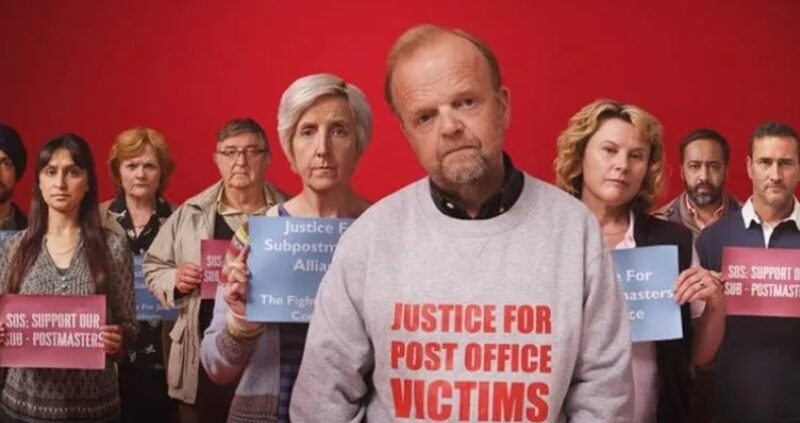By John Pickard, Brentwood and Ongar Labour member
At the stroke of a pen, in an announcement to a Tory think-tank, Health Minister Matt Hancock, has abolished Public Health England, replacing it with a new body called the National Institute for Health Protection. In the middle of a pandemic, with the UK experiencing the worst fatality rates in Europe, with a test and trace system unfit for purpose, there couldn’t have been a worse time for a major reorganization of public health.
The move is seen, and justifiably so, as a ham-fisted attempted to scapegoat PHE to divert attention from the serious failings of the Tory government. Public Health England has made serious mistakes, but they were not responsible for the complete fiasco in PPE provision or for the lack of adequate testing; nor for the miserably poor performance of the test and trace programme now supposedly up and running. Although the new body has yet to be given a formal structure or a permanent chair, its work, apparently, has already begun. Little wonder, then, that the reorganization has been met with universal condemnation across the entire gamut of the medical profession.
Richard Murray, chief executive of the King’s Fund, an influential health think-tank:
“…the middle of a pandemic is not the right time to dismantle England’s public health agency”
Jennifer Dixon, chief executive of the Health Foundation:
“setting up and abolishing or merging national agencies like PHE is all too common and frequently demoralizing, wasteful and lacking justification”
Dr Sarah Wollaston, until December Tory chair of the House of Commons health select committee:
“seeking to scapegoat the PHE is extraordinary after cutting public health funding and excluding local directors of public health from decision-making on Covid…”
Justin Madders, Labour health spokesperson [on the appointment of Dido Harding]:
“I’m speechless…appointed to a body that hasn’t been created yet, without an interview and with a track record like that: absolutely no transparency or accountability.”
Martin McKee, professor of public health at the London School of Hygiene and Tropical Medicine:
“The government seems to have learnt nothing from its experiences with Covid so far…there is no analysis of the problem to be solved, no clarity as to how they think this will solve it, and no evidence they understand the well-established consequences of major reorganisations”
Jeremy Farrar, director of the Wellcome Trust and SAGE member:
“Arbitrary sackings. Passing of blame. Ill thought through, short term, reactive reforms. Out of context of under investment [in public health] for years.”
Professor Andrew Goddard, president of the Royal Society of Physicians:
“the staff within PHE have worked above and beyond completely over the past months…many have worked seven-day weeks, sixteen-hour days, and I think the announcement about all of this will just undermine them.”
An obesity campaign that lasted a fortnight
Public Health England was responsible, among other things, for the government’s campaign against obesity – launched with great fanfare by Boris Johnson only two weeks ago – but it will not be part of the remit of the new agency and it is not clear who will now deal with it. It also means that of the current 5,500 staff employed by the PHE, nearly 800 have no defined roles in the NIHP and at this point have no idea where they will be heading, if not for the Job Centre. Besides the now apparently defunct obesity campaign, these workers were involved in key issues like health screening, well-being, children’s health and other health-based information campaigns like smoking and alcohol consumption – none of which rate highly in a typical Tory’s view of the ‘nanny’ state.
With the new NIHP, it is a case, yet once more, of jobs for the pals of the Tory Party. Its new chair will be Dido Harding. She is superbly qualified – not in health, of course – but as an old Oxford friend of Boris Johnson and the person behind the failing test-and-trace system. She also happens to be married to a Tory MP who is associated with a right-wing think-tank that favours privatizing anything that moves, including the NHS. For good measure, she is also a steward of the Jockey Club that gave the go-ahead for the Cheltenham race festival in March, described by the government’s former chief scientific adviser, David King, as “the best possible way to accelerate the spread of the virus.” So, well qualified in health!
Snouts in the trough
As always with Tory policies and measures, the private sector get their snouts in the trough. Civil Service World reported that the management consultancy company McKinsey got a cool half a million to ‘advise’ on the reorganization of PHE into the NIHP.
This is a life-changing sum for most workers, but peanuts in comparison the huge amounts of money being thrown by the Tories at the private sector. The test and trace system that is just about stumbling along is worth a cool £10bn, money set aside by the government to manage test and trace in the coming months. Companies like Serco, Sitel and Capita are among those who will be favoured by this bonanza.
According to the British Medical Journal, “Documents published by the Treasury show that the UK government has so far spent £10bn (€11.2bn; $12.7bn) on its much derided covid-19 test and trace programme.”
Late last month, more than a hundred public figures, including public health experts, academics, journalists, and trade union leaders, wrote an open letter to Matt Hancock demanding that he publish details of the contracts given to private companies to run the national Covid test and trace system. The letter noted that although £10bn of public money had been allocated for the test and trace system in England more than £9bn of funding was still unaccounted for, and “only £300m additional funding has been offered to local authorities across England to support the system.”
PHE set up by the Tories only seven years ago
The entire thrust of Tory strategy on the NHS over many years has been to promote a creeping privatisation. The establishment of PHE by the Tories in 2013 was precisely to manage that process and its replacement is a means of opening the door wider.
As billions are handed out in secretive and suspicious contracts to the private sector, usually without any competitive tendering, it is clear that the Tories are using the cloak of the Covid pandemic as a means of driving through an increasingly rapid privatisation. Most of the contracts now being awarded have been hush-hush because public opinion is overwhelmingly in favour of a fully publicly-owned National Health Service and so the privatisations and contracts are largely kept in the shadows.
But it is unfortunate that one of the reasons for the Tories success thus far has been the equivocation of some Labour leaders on the private sector penetration of the NHS. It was under Tony Blair that a major reorganisation of the NHS led to the introduction of the so-called ‘internal market’. It was ‘Labour’ health ministers who privatised some sections of health provision. Worst of all, the widespread introduction of PFI scams in the New Labour years has crippled NHS finances ever since. Labour Party members need to know the views of the leadership on private sector involvement in the NHS.
There is no room for ambiguity on this. Labour has to be the party of a fully-public National Health Service, organised and managed for the health of the population, not for profiteers. This was how it was envisaged seventy years ago and this is the minimum conditions for how it should be run today. Socialists must campaign in the party.
* For a fully-publicly-owned National Health Service, adequately funded.
* For the cancellation of all private contracts and for all privatised services to be brought back in-house.
* For the cancellation of PFI scams without further compensation.
* For the public ownership of all companies providing goods and services for the NHS, including equipment and drugs manufacturers.
* For the cancellation of cuts and the restoration of all funding for local authority public health services in social care, and integrated into NHS services.
* For no more top-down reorganisations of public health and the NHS: full integration and democratic management of national, regional and community health and social care structures.
August 21, 2020



